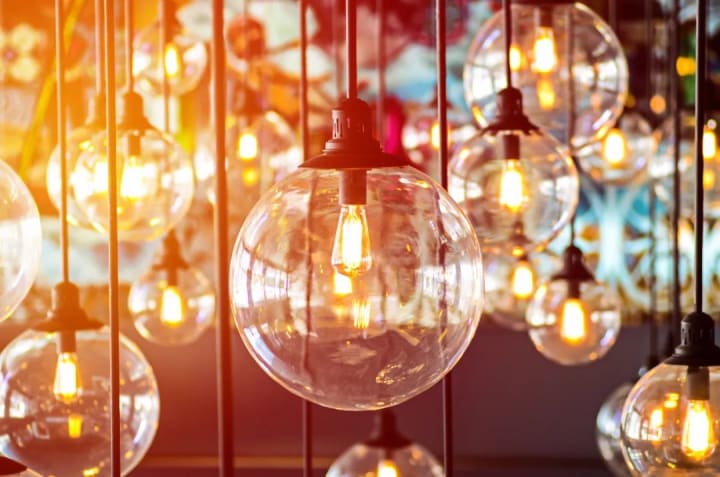
Not long ago, VIP Institute, a consumer research institute, released the "2022 China Luxury Report". According to the data, in 2022, the sales volume of the luxury market of the Chinese people accounted for 38% of the global luxury market, and the Chinese people are the most important force in the global luxury consumption.
It is often said that more than half of the price of luxury goods is invisible brand premium, but it cannot stop people from buying luxury goods.
Luo Yonghao said in the live broadcast that there is a great anxiety in the society that people think I am poor and don't look up to me. Wearing a brand of clothes and buying a bag can solve this anxiety to some extent.

I recommend four books, from the psychological mechanisms of possessiveness to the development of consumerism.
You will find that when you think you are choosing the product, the product is choosing you.
~~~~~~~~~~~~~~~~~~~~~~~~~①~~~~~~~~~~~~~~~~~~~~~~~~~
Why do we see things "go to the head" or "buy on impulse"? What were you thinking when you placed the order?
Why do people like to buy luxury goods? If you see a man wearing a brand name, you think he is successful?
Why are we working longer, but poorer?
Why is it that the poorer families are, the more they spend their meagre income on things they don't need?
The purpose of most human behavior is to pursue possession, to have "ownership", but most of us don't stop to think: why do we want more? What does having more mean to you?
Bruce Hood, the author of Possession by Domination, is a cognitive psychologist who examines the origins of ownership and the psychological mechanisms behind it. He says that the idea of ownership comes from childhood and is an extension of the self.
A man's self is the sum of what he can call "all that he has," not only his physical and mental strength, but also his clothes and house, his wife and children, his ancestors and friends, his reputation and work, his land, as well as his yacht and bank account.
By owning something, we extend ourselves out into the world. We express our identity and status to others through our possessions.
But while we can overvalue our possessions and be reluctant to let them go because they represent who we are, it's also easy to take most of our possessions for granted.

We come into this world with nothing, and we leave it with nothing, but in the moments between we come and go, we are either proud of what we have, or we are troubled by what we have.
For many people, life is dominated by this endless pursuit. We think that having things will bring us happiness, but in fact, it often leads to more pain.
If you want to change, if you want to be happy, if you want to understand your inner motivation and psychological mechanism for wanting something, you will regain ownership of yourself.
~~~~~~~~~~~~~~~~~~~~~~~~~②~~~~~~~~~~~~~~~~~~~~~~~~~
There used to be a very popular saying: "In the past, if something broke, you had to fix it. Now people throw it away and buy a new one."
The important subtext behind this sentence is that people no longer pursue the use value in consumption, but the "possession" represented by the symbol value and the status carried by the commodity.
Why do we buy something with the same features, but with a better brand name and a higher price tag?
Why is it that the more you buy, the less satisfied you become?
Did you make the purchase, or were you guided by some force to make the choice?
Making a Consumer is a history of consumerism that tells you not how to consume, but how you are being consumed.
The boom in brands, large department stores, public relations and advertising, as well as the excessive packaging of commodity values, have all affected the way human beings perceive and realize themselves, making us "evolve" from self-sufficient producers into "buying and selling machines".
Advertising and media depict happy consumption scenarios, create templates for a better life, and draw us into the logic of consumerism, which eventually becomes a nightmare of eternal excellence but no personality.
Department stores trafficked in class status. They offered goods that fit the bourgeois lifestyle and made people think that by buying certain clothes or furniture they could acquire bourgeois symbols. By buying an item, people can pretend to be part of an enviable group.
It seems that people choose commodities and commodities bring pleasure to people, but in fact all these are subject to a kind of collective social logic. People do not really consume because of internal needs, but are led by the nose by consumerism.
In a consumer society, goods are like waves, lapping at people's desires one layer after another. They are neither completely washed away nor merely titillate your desire for more.
~~~~~~~~~~~~~~~~~~~~~~~~~③~~~~~~~~~~~~~~~~~~~~~~~~~
Social progress, economic development, but people prefer to "cry poor".
Are we really getting poorer?
Sociologist Siegmont Bowman developed the concept of the "new poor" in his book Work, Consumerism, and the New Poor.
In a consumer society, he argues, we seem to have more freedom to choose goods and live our lives, but end up as busy "new poor".
No matter how much we jump, almost always someone's consumption power is higher than ours. The increasingly developed and omnipresent media connect the world, so that we can always see the enviable "life of others", and constantly produce the desire to imitate.
The practical consequence of this is that the poor in a consumer society are not "unemployed" but "defective consumers", people who cannot consume to satisfy their ever-renewing desires.

In a functioning consumer society, consumers actively seek to be seduced. Their lives lurch from attraction to attraction, from temptation to temptation, from swallowing one lure to searching for another, and each new lure, temptation and lure is different and seems more enticing than the one before.
To get the bait, people have to keep working.
Consumer society advocates instant gratification, creating credit cards and other devices that allow us to satisfy our desires immediately, and losing the patience to accumulate wealth and wait for our desires to be satisfied.
Poverty is not limited to material deprivation and physical suffering; it is also a social and psychological condition.
Every society has standards of "decent living", and if they are not met, people will fret, suffer, and self-torment.
Being poor means being excluded from "normal life," it means being "not up to par," which leads to a blow to self-esteem and feelings of shame and guilt.

"Middle age has three treasures, Lulu, Lauren, Archaeopteryx";
"Avocados -- the norm for the Middle Class"...
Brands and products will always become synonymous with a certain lifestyle, and these brands and products will always change from avocado one day to cherry the next.
Back in the late 19th century, Thorstein Veblen defined the "leisure class," those who conspicuous consumption as a way of demonstrating their status.
At that time, men used walking sticks as a show-off tool, and women bought silverware.
In today's world, the power of material goods as status symbols has diminished considerably, and the leisure class has been replaced by a new elite. Elizabeth Coride of The Sum of Tiny Sums calls them the "aspirational class".
They are highly educated and define themselves in terms of cultural capital rather than monetary income. They are keen to buy organic food and value breastfeeding. They care about non-conspicuous consumption, spending their purchasing power on nannies and housekeepers, raising children and practicing yoga.
The consumption habits of the aspiring class have changed from the consumption of tangible materials to the consumption of status and knowledge, which also affects the consumption choices of all of us.

The choices people make on non-conspicuous consumption -- education, health care, childcare, college tuition -- are the ones that really affect quality of life and upward social mobility.
~~~~~~~~~~~~~~~~~~~~~~~~~end~~~~~~~~~~~~~~~~~~~~~~~~
If you have any ideas, feel free to leave them in the comments section.
~This is Antoine, and I hope you find pleasure in each of my articles~
About the Creator
antoine
Hey, my friend,If you feel bored, you can come and read my writing to kill some leisure time!!






Comments
There are no comments for this story
Be the first to respond and start the conversation.